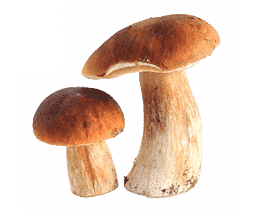
Can Psychedelics Replace Antidepressants?
Depression is a heavyweight that many individuals bear, often in silence. Traditional treatments, such as selective serotonin reuptake inhibitors (SSRIs), have long been the standard approach.
However, these medications can take weeks to show effects and may not work for everyone. It has led to a growing interest in alternative treatments, particularly psychedelics like psilocybin and ketamine treatment.
These substances have shown remarkable potential in clinical trials, offering rapid relief and long-lasting benefits. But can psychedelics truly replace antidepressants in treating depression?
This article explores the science, clinical research, and therapeutic possibilities that psychedelics present as a new frontier in mental health treatment.
The Rise of Psychedelics in Treating Depression
For decades, traditional antidepressants like selective serotonin reuptake inhibitors (SSRIs) have been the go-to solution for treating depression. However, not everyone responds well to these treatments. Many people with major depressive disorder experience treatment-resistant depression, meaning standard antidepressants fail to alleviate their symptoms. It has sparked a renewed interest in psychedelics as a potential alternative.
Can Psychedelics Be Used To Treat Mental Health Conditions?
Psychedelics, such as psilocybin treatment and MDMA, are emerging as promising treatments for various mental health conditions, including depression, anxiety, and PTSD. Clinical trials have shown significant improvements in symptoms for patients resistant to traditional therapies.
These substances interact with serotonin receptors in the brain, potentially “resetting” thought and emotional patterns. While safety and legal issues remain, controlled clinical settings have demonstrated relative safety and efficacy.
As research advances, psychedelics may become a mainstream option in mental health care, offering new hope for those who haven’t found relief through conventional methods.
How Psychedelics Differ from Traditional Antidepressants
Unlike traditional antidepressants, which typically require daily dosing and can take weeks to show any effect, psychedelics like psilocybin and ketamine offer a fast-acting solution. Many patients report significant improvements in their depression symptoms within hours or days after a single treatment session. This rapid response is particularly beneficial for those suffering from severe depression, where timely intervention is crucial.
Are Psychedelics A New Treatment Option For Depression?
Yes, psychedelics are emerging as a new treatment option for depression, especially for individuals who haven’t responded to traditional treatments. Substances like psilocybin and ketamine have shown promising results in clinical trials, providing rapid and lasting relief from depression symptoms.
These psychedelics work by altering brain chemistry and promoting neuroplasticity, offering a different approach compared to conventional oral antidepressant. As research continues and regulatory barriers are addressed, psychedelics could become a mainstream option for depression treatment.
What Is The Science Behind Using Psychedelics For Mental
The science behind using psychedelics for mental health lies in their interaction with the brain’s serotonin receptors, particularly the 5-HT2A receptor. This interaction induces altered states of consciousness, which can help “reset” neural pathways, leading to new ways of processing thoughts and emotions.
Psychedelics promote neuroplasticity, allowing the brain to form new connections, which can be beneficial in treating conditions like depression and PTSD. Research and clinical trials have shown that psychedelics can produce rapid and lasting improvements in mental health symptoms, making them a promising area of study for alternative treatments.
What Are The Therapeutic Possibilities Of Psychedelic Therapy?
The therapeutic possibilities of psychedelic therapy are vast and promising. Psychedelic substances like psilocybin, MDMA, and ketamine have shown potential in treating a range of mental health conditions, including depression, anxiety, PTSD, and addiction.
After a few treatment sessions, they can offer rapid symptom relief and long-lasting effects. Psychedelics promote neuroplasticity, allowing the brain to form new connections and pathways, which can help patients process and overcome deep-seated traumas and negative thought patterns.
Furthermore, these treatments can facilitate profound personal insights and emotional breakthroughs, contributing to overall mental well-being and resilience. As research continues, the scope of psychedelic therapy could expand, providing new hope for those struggling with various mental health challenges.
What Is The Future Of Psychedelic Therapy In Mental Health Treatment?
The future of psychedelic therapy in mental health treatment looks promising and transformative. Ongoing research continues to uncover the potential of psychedelics like psilocybin, MDMA, and ketamine to treat conditions such as depression, PTSD, anxiety, and addiction.
These therapies offer rapid, long-lasting relief and work differently from traditional treatments by promoting neuroplasticity and facilitating profound emotional and psychological insights. As regulatory barriers decrease and clinical evidence grows, psychedelic therapy is likely to become more mainstream.
Increased acceptance and understanding could lead to broader accessibility, better integration into conventional mental health care, and the development of new therapeutic protocols, ultimately providing hope and healing for many.
Final Thoughts
The burgeoning field of psychedelic therapy holds significant promise for revolutionizing mental health treatment. With growing clinical evidence supporting the efficacy of substances like psilocybin, MDMA, and ketamine, these therapies are emerging as powerful alternatives to traditional treatments for depression, PTSD, anxiety, and addiction.
Their ability to provide rapid, lasting relief and foster deep psychological healing sets them apart. As research advances and societal attitudes shift, the integration of psychedelic therapy into mainstream mental health care could offer new hope and effective solutions for countless individuals struggling with mental health conditions.
The future of psychedelic therapy is bright, signaling a potential paradigm shift in how we approach and treat mental health.
Explore Mind Mend‘s shroom products with your journey. Reach out today!




